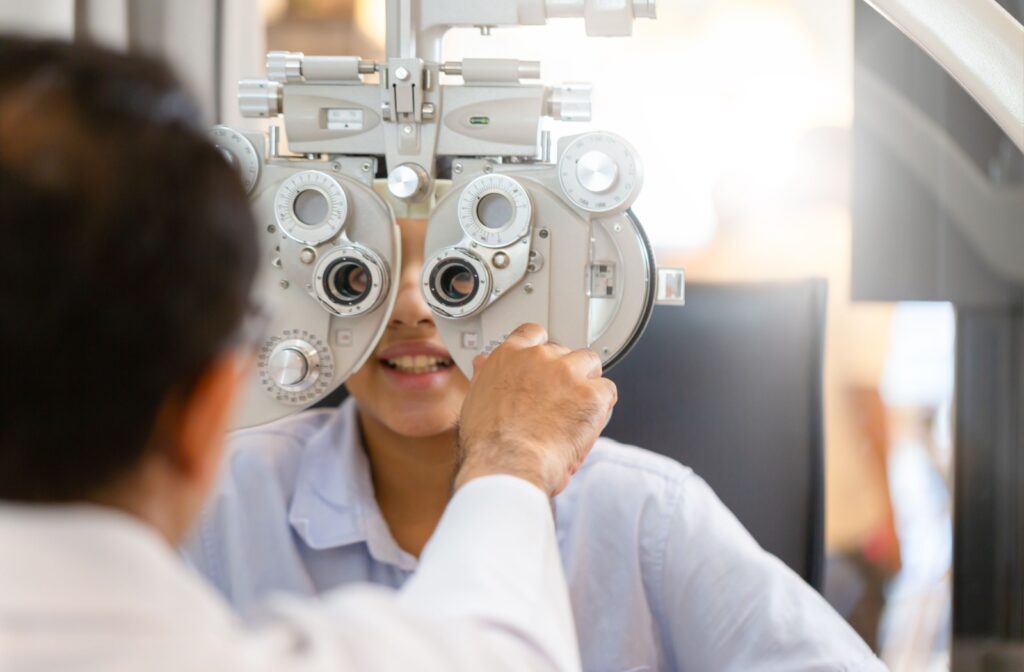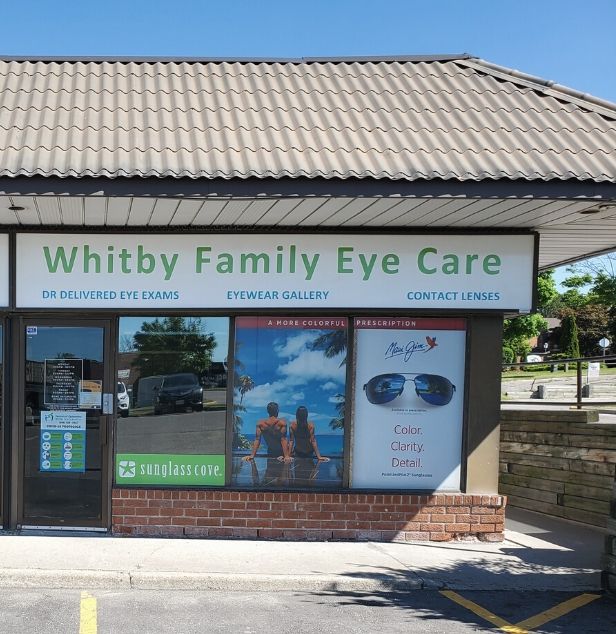Our vision is one of our most vital senses, yet it’s often taken for granted—until something goes wrong. Blurry vision, frequent headaches, or trouble focusing can disrupt daily life and may signal the need to take a closer look at your eye health. One of the most common questions people ask when they experience vision problems is: Is eyesight hereditary?
The answer isn’t as simple as a yes or no. While genetics does play a significant role in eye health, affecting things like eye colour, vision clarity, and the risk of certain conditions, it’s only one piece of the puzzle. Understanding how heredity, lifestyle, and environment all interact can help you take a proactive approach to protecting your sight, starting with regular eye exams.
How Genetics Affects Eyesight
Our genes determine much about us—from hair colour to height to eye colour. But they also influence how well we see. If you have parents or siblings who wear glasses or suffer from eye diseases, it’s natural to wonder if you’ll face the same issues.
Several common vision conditions have a hereditary component, including:
- Myopia (nearsightedness): A condition where distant objects appear blurry. Myopia often runs in families and typically begins in childhood.
- Hyperopia (farsightedness): This affects near vision and can also be passed down through generations.
- Astigmatism: A condition caused by an irregularly shaped cornea or lens, leading to blurred or distorted vision.
If one or both of your parents have these refractive errors, your chances of developing them are higher. However, genes are not the only factor at play.
It’s Not Just in Your DNA
While genetics may set the stage, your lifestyle and environment often determine the outcome. Here are some non-hereditary factors that can influence your eye health:
- Age: As we get older, vision can naturally decline. Conditions like presbyopia, cataracts, and age-related macular degeneration (AMD) become more common.
- Screen time: Spending long hours in front of digital screens can cause digital eye strain, blurry vision, and discomfort.
- UV exposure: Prolonged exposure to the sun’s harmful rays without proper eye protection can increase the risk of cataracts and other eye issues.
- Medical conditions: Diseases such as diabetes and high blood pressure can impact your eyesight over time.
- Smoking and diet: Smoking is a known risk factor for AMD and cataracts, while a poor diet lacking in essential nutrients can also hurt your vision.
All of these elements—alongside your genetics—contribute to your overall ocular health.
Understanding Hereditary Vision: What’s True & What’s Not
There’s a common belief that if your parents have perfect eyesight, you will too—or that all eye conditions are passed down through genetics. The truth is a bit more complex.
While genetics can influence your risk of certain vision problems, they aren’t the only factor. Even with perfect family eye health, you can still develop vision issues due to aging, screen time, diet, or other lifestyle choices. Some eye conditions do tend to run in families, such as:
Age-Related Macular Degeneration (AMD)
This affects the central part of your vision. A family history increases your risk, but other factors like smoking, poor diet, and UV exposure also play a role.
Glaucoma
This group of conditions can damage the optic nerve and lead to vision loss. While genetics is a key factor, your risk also rises with:
- High eye pressure
- Age (especially over 60)
- Race
- Past eye injuries
- Long-term steroid use
- Health conditions like diabetes or high blood pressure
- High Nearsightedness ( Myopia )
Lifestyle Habits That Support Eye Health
The good news? There’s a lot you can do to support healthy eyes, no matter your genetic background.
- Eat well: A diet rich in leafy greens, colorful fruits, and omega-3 fatty acids (like those found in fish) can protect against many eye conditions.
- Exercise regularly: Physical activity supports healthy blood flow and helps prevent diseases like diabetes that can harm your eyes.
- Wear sunglasses: Look for shades that block 100% of UVA and UVB rays to guard against sun damage.
- Take screen breaks: Follow the 20-20-20 rule—every 20 minutes, look at something 20 feet away for 20 seconds.
- Avoid smoking: Smoking is a top risk factor for AMD, cataracts, and optic nerve damage.
Small, daily habits can go a long way toward preserving your vision.

What If Eye Conditions Run in Your Family?
If you know that eye conditions are present in your family history, that’s all the more reason to be proactive. Your best defense? Annual comprehensive eye exams.
Your eye doctor can monitor your vision, detect problems early, and recommend personalized strategies based on your unique risk factors. During your appointment, be sure to mention any family history of eye conditions. This helps your optometrist tailor screenings and treatments to suit your needs.
Early detection can make a significant difference in preserving your eyesight and preventing complications later in life.
Why Annual Eye Exams Are Essential
You don’t need to wait until something feels wrong to get your eyes checked. Many eye conditions, including glaucoma and diabetic retinopathy, don’t show obvious symptoms in their early stages. Regular eye exams allow your optometrist to spot problems before they become serious—and often, before you even notice a change in your vision.
Even if you have perfect vision, having an annual exam can help track subtle changes over time and ensure your eyes remain healthy. It’s a simple, effective way to take control of your eye health, especially if you’re genetically predisposed to certain conditions.
Take the First Step Toward Lifelong Vision
While eyesight can be hereditary, it’s not set in stone. Genetics may influence your risk, but your daily choices and regular eye care are just as important. By understanding how your family history and lifestyle intersect, you can take the right steps to protect your vision today and for years to come. Don’t wait until you notice changes in your eyesight. Book your annual eye exam today at Whitby Family Eye Care in Whitby, ON, and let us help you see your world clearly and confidently.







